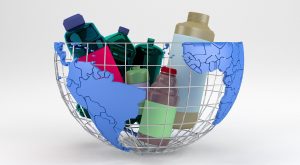An economy capable of creating employment opportunities is essential. However, it is even more so in times of recession like the present. Therefore, now that both governments and the private sector have opted to invest in “green” or neutral economic recovery strategies, it is important to assess the potential use of these. A question that has been answered by the report ‘The Job Creation Potential of Zero Waste Solutions’ prepared by Zero Waste Europe, estimates that the waste management sector has the potential to create 2.9 million jobs, only considering the 97 European cities that are members of this organization.
The strategies that are framed in the ‘Zero Waste’ prioritize the prevention, reuse, composting and recycling of waste and its objective is to minimize the environmental impact, contributing to a fairer society. In this sense, the aforementioned report concludes that implementing zero waste strategies not only reduces greenhouse gas emissions, but also provides significantly more jobs than systems based on elimination.
Benefits of recycling, repairing and remanufacturing for job creation
This philosophy of life is nourished by actions such as recycling, repair or remanufacturing. All with a common mission: to provide a second life to the goals so that they never become waste. Recycling, increasingly integrated into our routine, is based on material collection, sorting and cleaning, among other processes and, although less frequently, additional processing to transform materials that are recyclable into raw material to remanufacture other products.
Other topics of interest: Plastic transformers, a growing industry
Recycling creates 50 times more jobs than landfills and incinerators
Recycling creates 50 times more jobs than landfills and incinerators. The reason is that zero-waste systems offer more employment opportunities, as the people involved can use their skills beyond basic manual labor, which in turn allows them to provide higher wages, offer more permanent jobs and improve the quality of life of workers.
Repair is another practice that promotes ‘Zero Waste’ strategies and is based on the collection, rehabilitation and resale of durable goods such as furniture or electronics. Thus, creating 200 times more jobs than landfills and incinerators, since economic objectives are aligned with environmental objectives: the waste management strategies that create most of the work also offer the best result with respect to the environment.
Finally, remanufacturing is an activity that uses recycled material as a raw material to produce consumer products that are subsequently marketed. This practice generates 30 times more jobs than landfills and incinerators.







